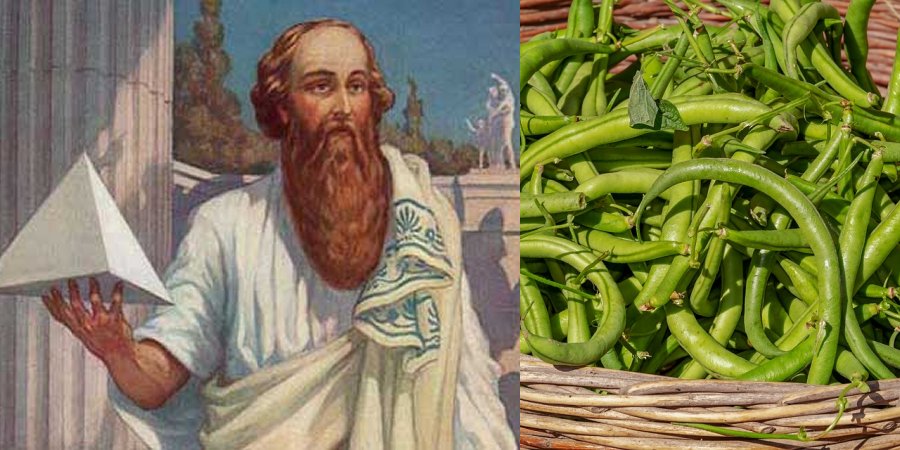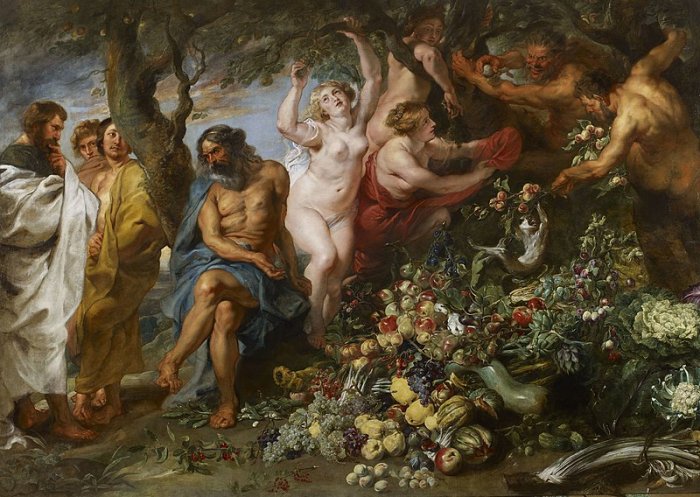Why Didn’t Pythagoras And His Followers Eat Beans?
Conny Waters - AncientPages.com - Pythagoras of Samos, an ancient Greek philosopher who made great contributions to mathematics and founded the Pythagorean School of Mathematics in Cortona, a Greek seaport in Southern Italy, was a vegetarian.
But did you know that Pythagoras abstained from meat and beans? Most vegetarians consume beans, but Pythagoras told his followers they mustn’t eat or even touch beans! Was Pythagoras worried about gastric problems, or did he have a deeper reason for omitting beans from the diet?
Left: Pythagoras. Credit: Famous Mathematicians. Right: Beans. Credit: Public Domain
The reason behind this is not entirely known, but there are certain theories that can provide some light on the great philosopher’s reluctance to beans.
Pythagoras believed that a person should strive for tranquility and peace. Beans were associated with metempsychosis, a philosophical term in the Greek language referring to the transmigration of the soul, especially its reincarnation after death. Pythagoreans believed that beans had the potential for life because they looked like human genitalia or fetuses.
Pythagoras conducted a scientific experiment demonstrating that humans and beans were spawned from the same source. He took some beans and buried them in the mud. They rested there for a few weeks before being removed and investigated by the great Greek philosopher. He concluded they looked like human fetuses.
Like ancient Egyptians, Greeks knew that fava beans could be deadly. Pliny wrote that followers of Pythagoras believed that fava beans were connected to Hades, the Greek God of the Dead, and the Underworld. The plants’ black-spotted flowers and hollow stems served as ladders for human souls and were associated with reincarnation.
Aristotle suggested that the bulbous shape of beans represented the entire universe, which was why beans shouldn’t be consumed.
Cicero proposed another explanation. In his book On Divination, he just wrote that he believed the Pythagoreans didn’t eat beans because they caused flatulence.
Pythagoras advocating vegetarianism. Painting made between 1618 and 1630. Credit: Public Domain
Another theory is that Pythagoras may not have had anything against beans at all. However, beans were used in ancient Greece as a ballot system. White beans represented a yes vote and black a no.
When Pythagoras said to his disciples, "Abstain from beans," he had no reference to them as an article of diet, for he ate them himself, but he advised his students not to get caught up in politics or government.
As H. L. Sumner points out, “what he did mean, and what his immediate followers already understood, was that they should abstain from the intrigues of politics as being antagonistic to a philosopher's pursuits.”
To put it in plain text – We do know that Pythagoras had disapproved of beans, but we simply don’t know what was behind his negative attitude.
Updated on November 24, 2023
Written by Conny Waters – AncientPages.com Staff Writer
Copyright © AncientPages.com All rights reserved. This material may not be published, broadcast, rewritten or redistributed in whole or part without the express written permission of AncientPages.com
Expand for referencesMore From Ancient Pages
-
 Everyday Life Of A Samurai: Armor, Appearance And Belongingness
Featured Stories | Nov 6, 2018
Everyday Life Of A Samurai: Armor, Appearance And Belongingness
Featured Stories | Nov 6, 2018 -
 Ancient Liangzhu Culture Collapsed Due To Climate Change – New Study Says
Archaeology | Nov 25, 2021
Ancient Liangzhu Culture Collapsed Due To Climate Change – New Study Says
Archaeology | Nov 25, 2021 -
 How King Arthur Became One Of The Most Pervasive Legends Of All Time
Featured Stories | Feb 12, 2017
How King Arthur Became One Of The Most Pervasive Legends Of All Time
Featured Stories | Feb 12, 2017 -
 Lost Maya City Hidden In The Volcanic Lake Atitlán Explored By Underwater Archaeologists
Archaeology | May 4, 2022
Lost Maya City Hidden In The Volcanic Lake Atitlán Explored By Underwater Archaeologists
Archaeology | May 4, 2022 -
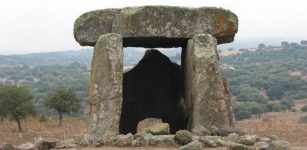 Ancient Secrets Of Megaliths And Anti-Gravity Revealed – Examination Of An Unknown Property Of Static Electricity
Ancient Technology | Feb 17, 2020
Ancient Secrets Of Megaliths And Anti-Gravity Revealed – Examination Of An Unknown Property Of Static Electricity
Ancient Technology | Feb 17, 2020 -
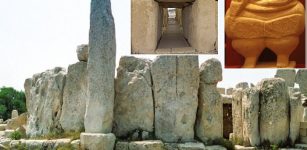 Hagar Qim: “Standing/Worshipping Stones” – Megalithic Complex In Malta Dated To 3600 – 3200 BC
Featured Stories | Feb 19, 2023
Hagar Qim: “Standing/Worshipping Stones” – Megalithic Complex In Malta Dated To 3600 – 3200 BC
Featured Stories | Feb 19, 2023 -
 Roman Mosaic Dated To Between 60 BC And 300 AD Unearthed In Baalbek
Archaeology | Dec 30, 2020
Roman Mosaic Dated To Between 60 BC And 300 AD Unearthed In Baalbek
Archaeology | Dec 30, 2020 -
 DNA Reveals 300,000 Years Of Hominin And Animal Presence At Denisova Cave
Archaeology | Jun 26, 2021
DNA Reveals 300,000 Years Of Hominin And Animal Presence At Denisova Cave
Archaeology | Jun 26, 2021 -
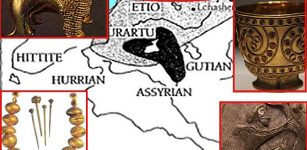 Trialeti Culture: Ancient Caucasian People Who Still Hold Their Secrets
Civilizations | Jul 8, 2017
Trialeti Culture: Ancient Caucasian People Who Still Hold Their Secrets
Civilizations | Jul 8, 2017 -
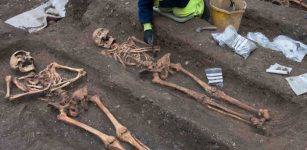 Medieval Friars Were ‘Riddled With Parasites,’ Study Finds
Archaeology | Aug 19, 2022
Medieval Friars Were ‘Riddled With Parasites,’ Study Finds
Archaeology | Aug 19, 2022 -
 Glorious And Scary Orava Castle – Realms Of Nosferatu And A Historical Landmark Of Slovakia
Featured Stories | Jan 24, 2020
Glorious And Scary Orava Castle – Realms Of Nosferatu And A Historical Landmark Of Slovakia
Featured Stories | Jan 24, 2020 -
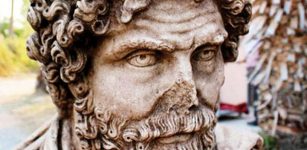 1,700-Year-Old Roman Bust Excavated In Ancient City Of Soli Pompeiopolis In Turkey
Archaeology | Jul 19, 2018
1,700-Year-Old Roman Bust Excavated In Ancient City Of Soli Pompeiopolis In Turkey
Archaeology | Jul 19, 2018 -
 Huge 40-Meter Long 16th Century Tunnel For Looting Was Exposed Inside Tower Tomb
Archaeology | Jul 15, 2019
Huge 40-Meter Long 16th Century Tunnel For Looting Was Exposed Inside Tower Tomb
Archaeology | Jul 15, 2019 -
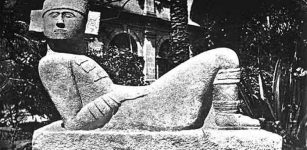 Chacmool (‘Chac-Mool’) – Intriguing Pre-Columbian Statue Found At Many Ancient Sites In Mesoamerica
Featured Stories | May 22, 2021
Chacmool (‘Chac-Mool’) – Intriguing Pre-Columbian Statue Found At Many Ancient Sites In Mesoamerica
Featured Stories | May 22, 2021 -
 Great Sumerian God Enki: Creator, Protector Of Humanity, Brilliant Scientist And Patron Of Craftsmen And Artisans
Featured Stories | May 9, 2017
Great Sumerian God Enki: Creator, Protector Of Humanity, Brilliant Scientist And Patron Of Craftsmen And Artisans
Featured Stories | May 9, 2017 -
 Petronella Oortman And Her Giant Dolls’ House
Featured Stories | Jul 10, 2019
Petronella Oortman And Her Giant Dolls’ House
Featured Stories | Jul 10, 2019 -
 Toruń Massive ‘Roundels’ Date Back 7,000 Years – Archaeologists Say
Archaeology | Jul 6, 2020
Toruń Massive ‘Roundels’ Date Back 7,000 Years – Archaeologists Say
Archaeology | Jul 6, 2020 -
 Hua Mulan – Chinese Brave Female Warrior In Disguise Who Fought Instead Of Her Old Father
Featured Stories | May 23, 2019
Hua Mulan – Chinese Brave Female Warrior In Disguise Who Fought Instead Of Her Old Father
Featured Stories | May 23, 2019 -
 Sinister Manchac Swamp And The Chilling Curse Of Julia Brown
Featured Stories | Aug 25, 2021
Sinister Manchac Swamp And The Chilling Curse Of Julia Brown
Featured Stories | Aug 25, 2021 -
 Pyramid-Builders’ Cemetery With Coffins Discovered Near Giza, Egypt
Archaeology | May 6, 2019
Pyramid-Builders’ Cemetery With Coffins Discovered Near Giza, Egypt
Archaeology | May 6, 2019

